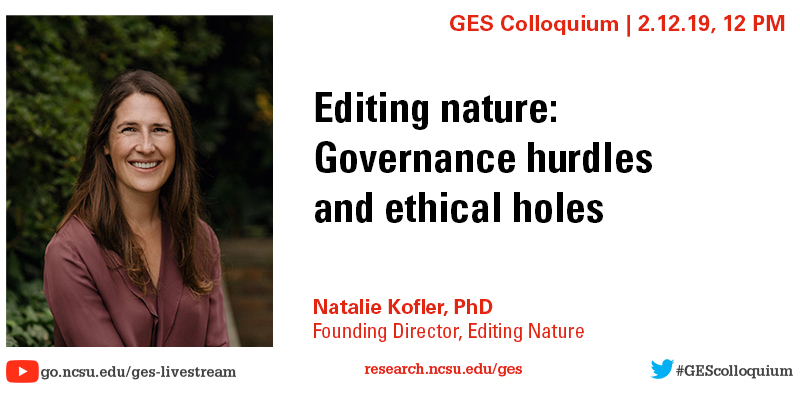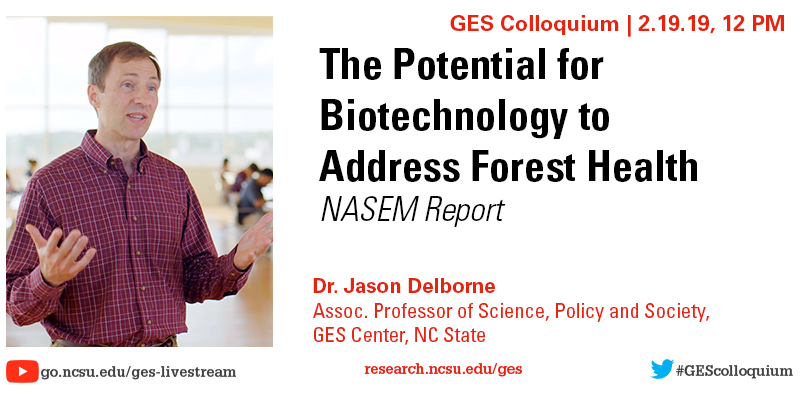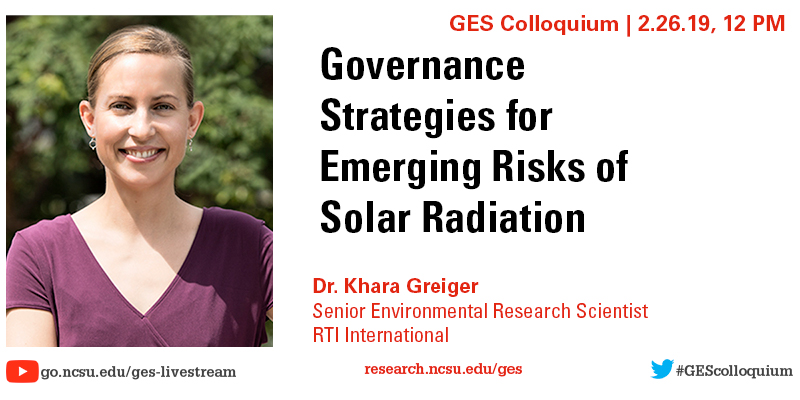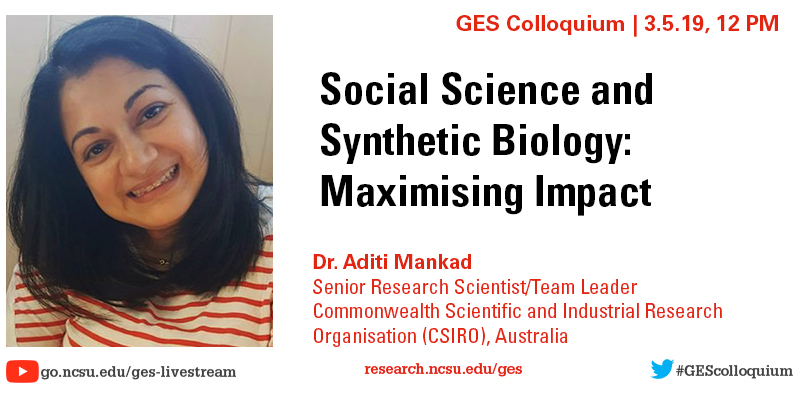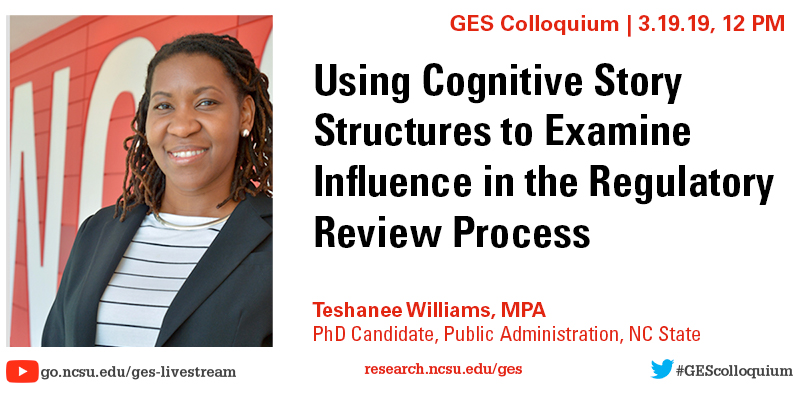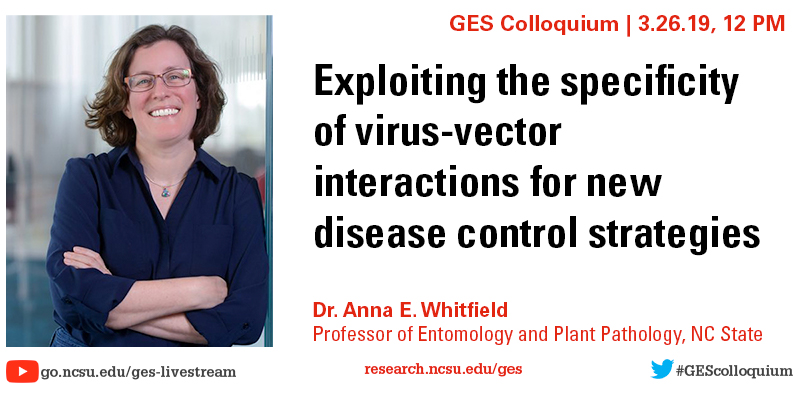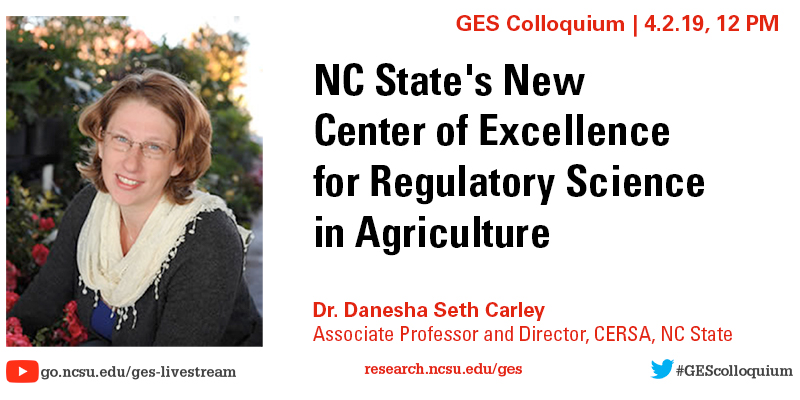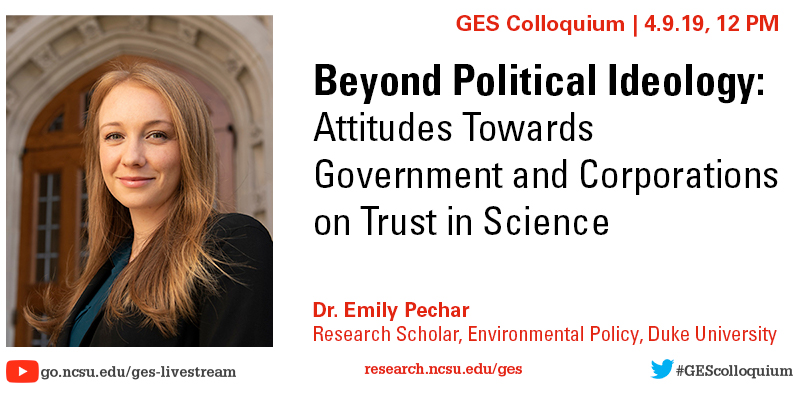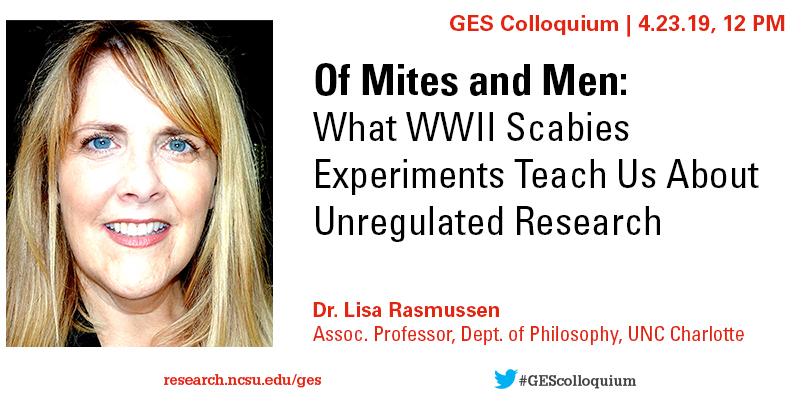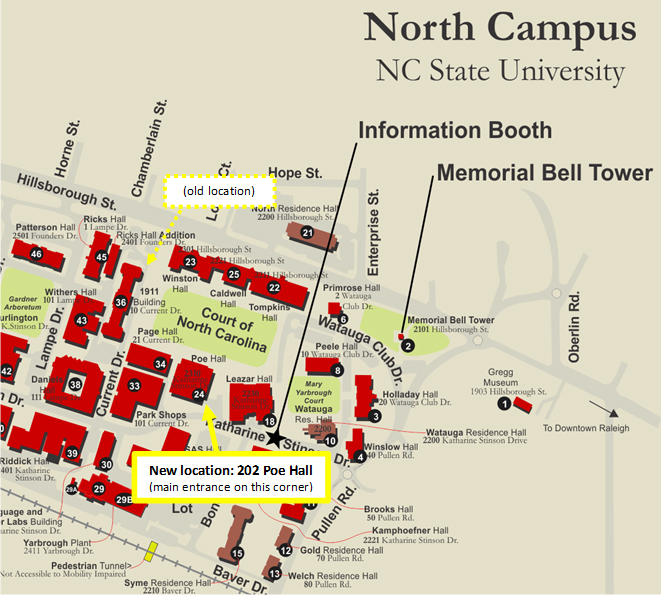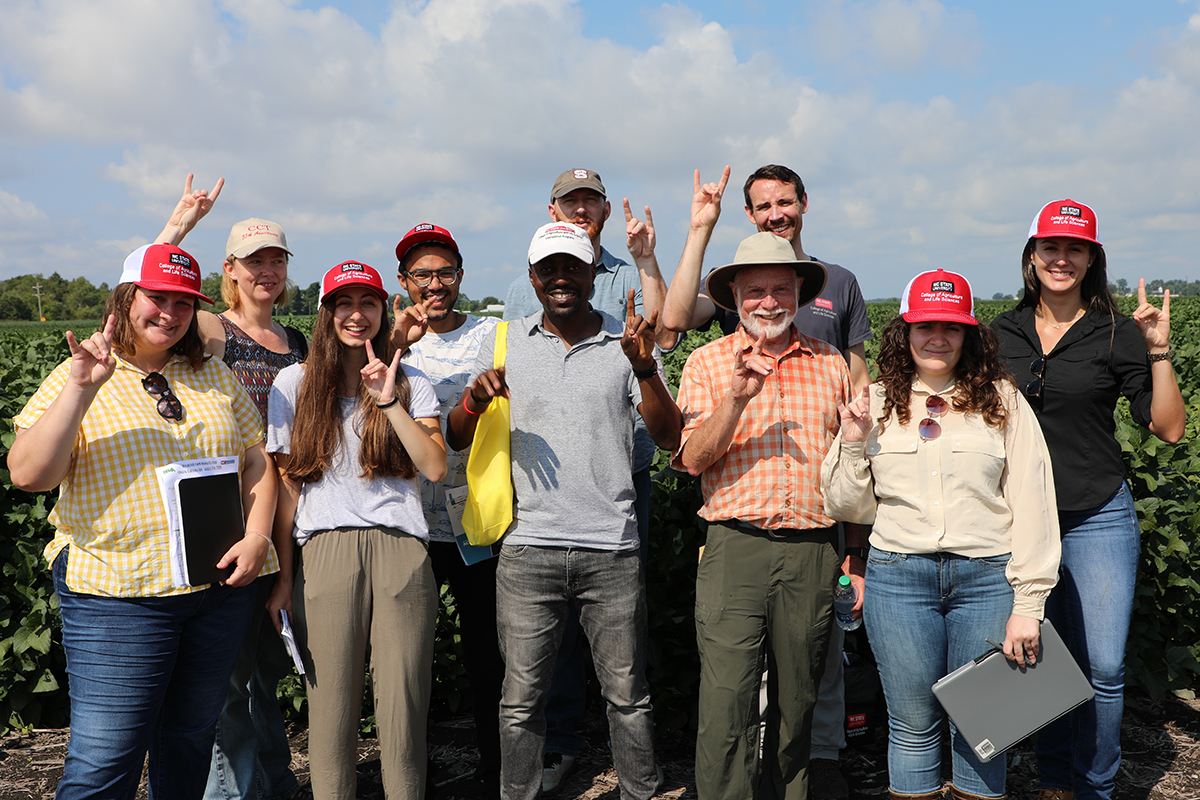GES Colloquium | Natalie Kofler – Editing Nature: Governance hurdles and ethical holes
1911 Building, Room 129 (North Campus) 10 Current Dr., Raleigh, NC, United StatesGES Colloquium, 2/12/18 | Editing nature: Governance hurdles and ethical holes - Dr. Natalie Kofler will describe her and co-authors' vision for a coordinated global governance model that integrates local community decision-making in ways that are both context-dependent and global in scope.
